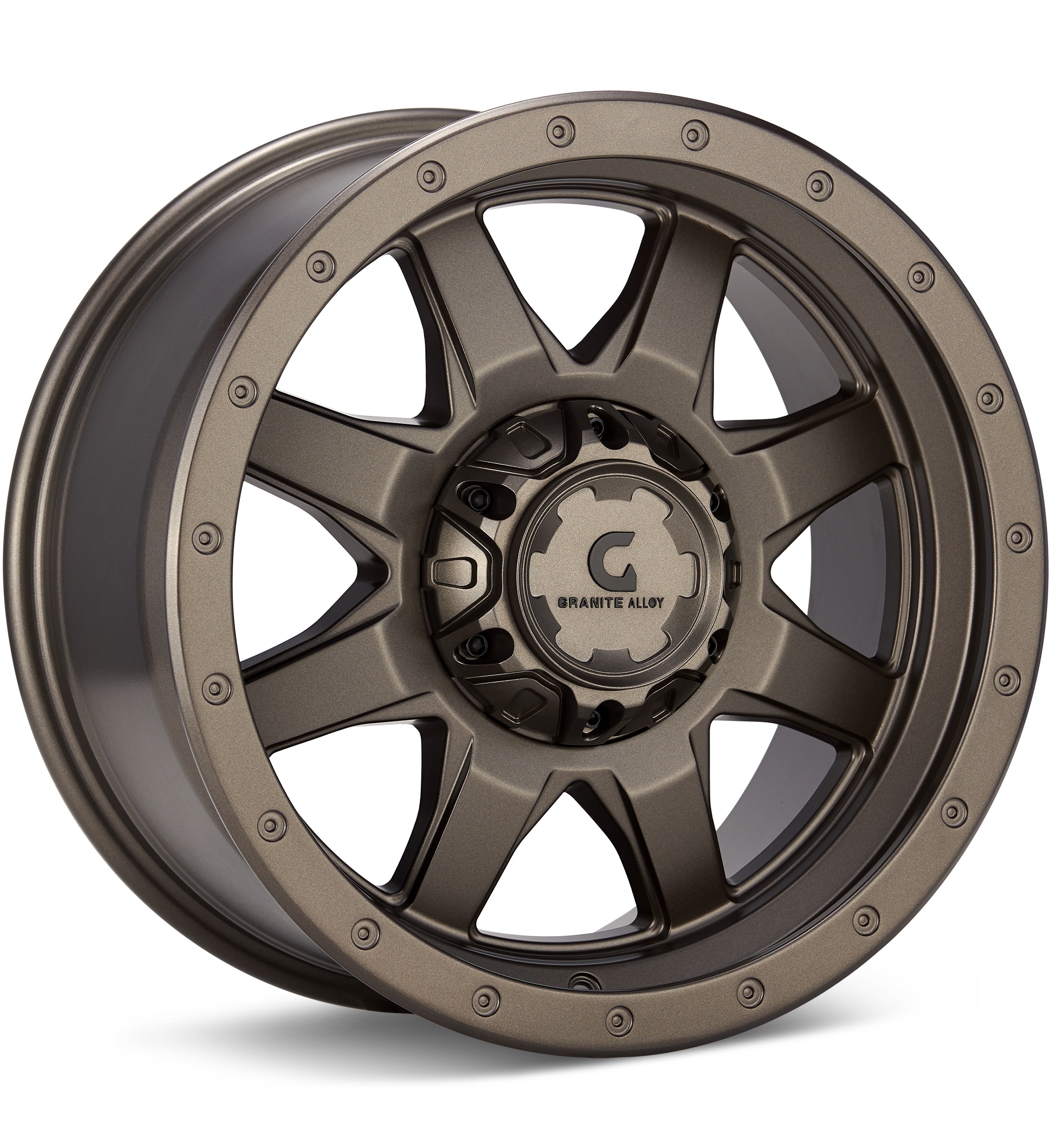From Quarry to Road: The Journey of Granite Alloy Wheels
From Quarry to Road: The Journey of Granite Alloy Wheels
Blog Article
Intro: The Significance of Selecting the Right Granite Alloy Rims for Your Vehicle
When it involves enhancing the look and performance of your vehicle, selecting the best collection of Granite Alloy rims is crucial. Not only do these rims add a touch of style and class to your car, yet they also improve handling and overall driving experience. Nevertheless, with numerous options offered in the marketplace, finding the right rims can be overwhelming. That's why we have developed this best overview to help you make an informed decision and select the perfect Granite Alloy rims for your vehicle.

What are Granite Alloy Wheels?
Prior to diving into the information of selecting the ideal Granite Alloy rims, allow's very first understand what exactly these wheels are. Granite Alloy wheels are made from a mix of top quality light weight aluminum alloy and other steels, making them lightweight yet durable. These rims are understood for their excellent strength-to-weight ratio, which permits better velocity, stopping, and handling. Furthermore, Granite Alloy wheels are very resistant to rust and deal superior warm dissipation buildings.
Elements to Consider When Finding Granite Alloy Rims
1. Dimension Issues: Finding the Right Size and Width
The size of your Granite Alloy rims plays a vital duty in both visual appeals and performance. It is very important to pick rims that are compatible with your vehicle's specs. The diameter of the rim need to match the tire dimension recommended by the producer. Furthermore, take into consideration the size of the rim as it affects tire fitment and overall performance.
2. Bolt Pattern: Making Sure Correct Fitment
The bolt pattern refers to the number of bolts on the rim and their spacing. It is necessary to choose Granite Alloy rims with a screw pattern that matches your vehicle's center pattern. Mounting rims with an wrong screw pattern can bring about inappropriate fitment, creating safety risks and impacting handling.
3. Offset and Backspacing: Accomplishing the Right Stance
The balanced out figures out exactly how far the rim sits from the vehicle's hub. It is essential to select a Granite Alloy rim with the right balanced out to accomplish the preferred stance. A positive offset means the mounting Granite Alloy rims 17 inch surface is more detailed to the outdoors, while a adverse countered suggests it is more detailed to the within. Comprehending your vehicle's particular requirements will aid you pick rims that use ideal clearance and prevent scrubing issues.
4. Lots Ranking: Ensuring Security and Sturdiness
Each vehicle has a suggested load ranking, which suggests the maximum weight capacity that the rims can sustain. It is important to select Granite Alloy rims with a tons rating that matches or surpasses your vehicle's needs. Choosing rims with a lower lots score can compromise safety and security and longevity.
5. Design and Complete: Enhancing Your Vehicle's Look
Granite Alloy rims come in numerous designs and finishes, permitting you to individualize your vehicle's look. Consider your vehicle's total visual and select a rim style that enhances it. Whether you like a smooth and contemporary look or a more tough and aggressive style, there are options offered to suit every preference.
Frequently Asked Questions (FAQs)
Q1: Are Granite Alloy rims ideal for all types of vehicles?
A1: Yes, Granite Alloy rims are readily available in different dimensions and configurations ideal for different sorts of vehicles, including cars, trucks, SUVs, and crossovers.
Q2: Can I mount Granite Alloy rims on my own?
A2: While it is feasible to set up Granite Alloy rims on your own, it is recommended to look for professional help to guarantee correct fitment and avoid any type of possible issues.
Q3: Just How do Granite Alloy rims improve performance?
A3: Granite Alloy rims are lighter than standard steel wheels, reducing unsprung weight. This enhancement in weight circulation results in much better velocity, braking, and handling, eventually boosting overall performance.
Q4: Can I use my existing tires with Granite Alloy rims?
A4: Most of the times, you can use your existing tires with Granite Alloy rims as long as they are compatible in regards to dimension and fitment. It is advisable to seek advice from a specialist to ensure a proper match.
Q5: Are Granite Alloy rims extra pricey than other types of wheels?
A5: While Granite Alloy rims may be somewhat extra pricey than steel wheels, they offer exceptional toughness, performance, and visual allure, making them a rewarding investment.
Q6: How do I maintain Granite Alloy rims?
A6: To keep your Granite Alloy rims in top condition, frequently tidy them utilizing a light soap and water remedy. Stay clear of making use of severe chemicals or rough cleaners that may damage the surface. Furthermore, apply a safety covering or wax to avoid rust.
Final thought
Selecting the best Granite Alloy rims for your vehicle is a decision that ought to not be taken lightly. By thinking about aspects such as dimension, bolt pattern, balanced out, load rating, and style, you can make certain ideal fitment and performance. Whether you want to boost the appearance of your car or enhance its managing abilities, Granite Alloy rims are an exceptional option. Remember to consult specialists and adhere to maker suggestions during the option and installment process to attain the very best results. Invest in top quality rims today and enjoy the advantages for years ahead! Report this page